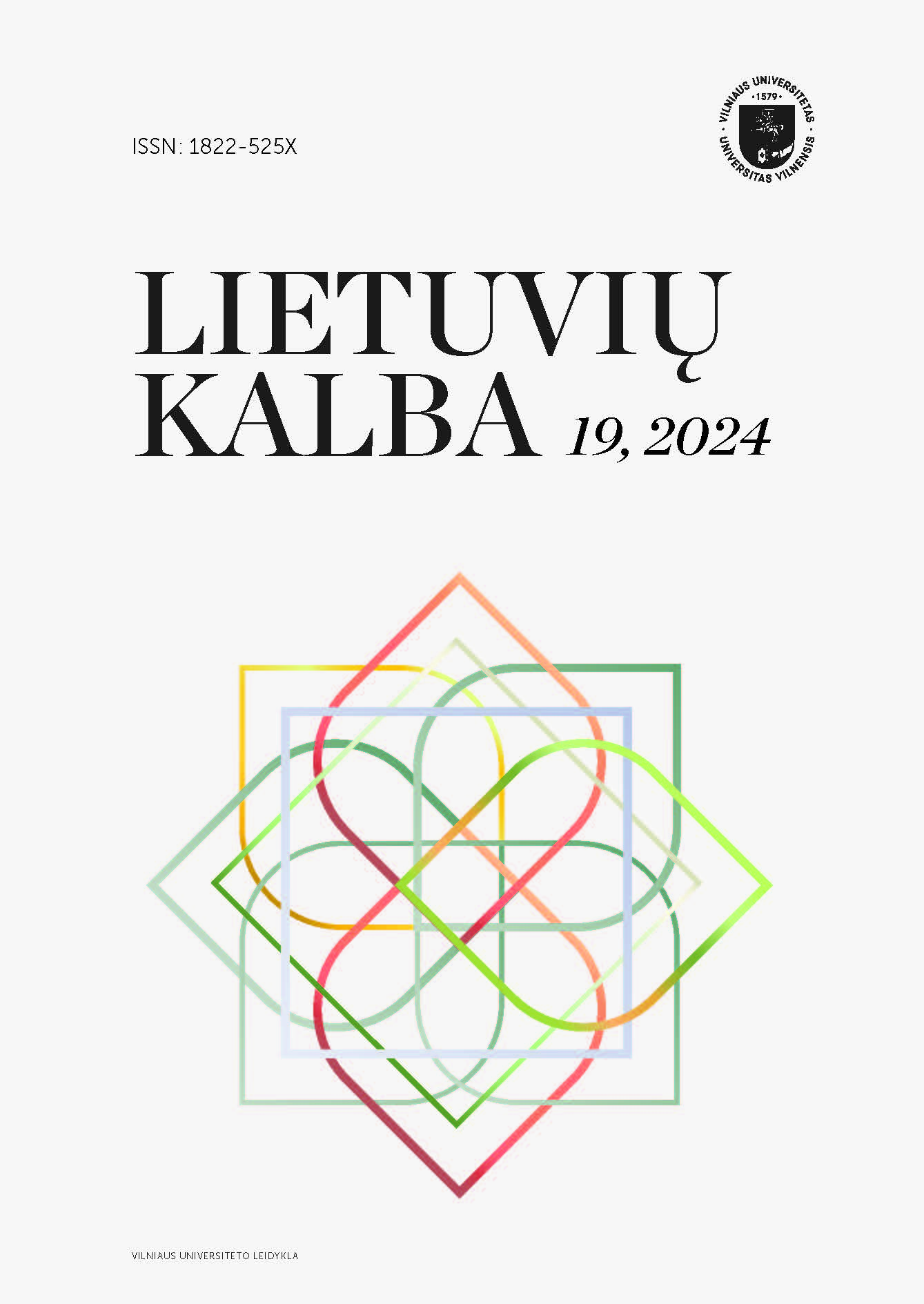Word Formation Patterns of Place Nouns in English and Lithuanian: A Case Study of a Novel by M. Katiliškis “Miškais ateina ruduo” and Its Translation into English
Word Formation Patterns of Place Nouns in English and Lithuanian: A Case Study of a Novel by M. Katiliškis “Miškais ateina ruduo” and Its Translation into English
Author(s): Danguolė Straižytė, Justė GanusauskaitėSubject(s): Morphology, Sociolinguistics, Lithuanian Literature, Baltic Languages, Stylistics
Published by: Vilniaus Universiteto Leidykla
Keywords: place nouns; Nomina Loci; word formation; derivatives; compounds; translation equivalents;
Summary/Abstract: The research aim of this paper is to compare and to analyze word formation properties of place nouns (hereinafter – NL) extracted from the Lithuanian novel “Miškais ateina ruduo” by M. Katiliškis, and their respective equivalents found in the English translation of the book. Although this noun category is productive and often used in everyday discourse, little research has been done to define the word formation properties of NL in Lithuanian and English languages with a special focus on a base word and its derivational capacities. Both Lithuanian and English languages have productive word formation processes such as suffixation, prefixation and compounding, although they vary significantly. The aim of this study is to find out similarities and differences in word formation processes between these two target languages and to compare word formation patterns of NL extracted from the Lithuanian text and their equivalents found in the English translation of the novel.
Journal: Lietuvių kalba
- Issue Year: 2024
- Issue No: 19
- Page Range: 94-113
- Page Count: 20
- Language: English

